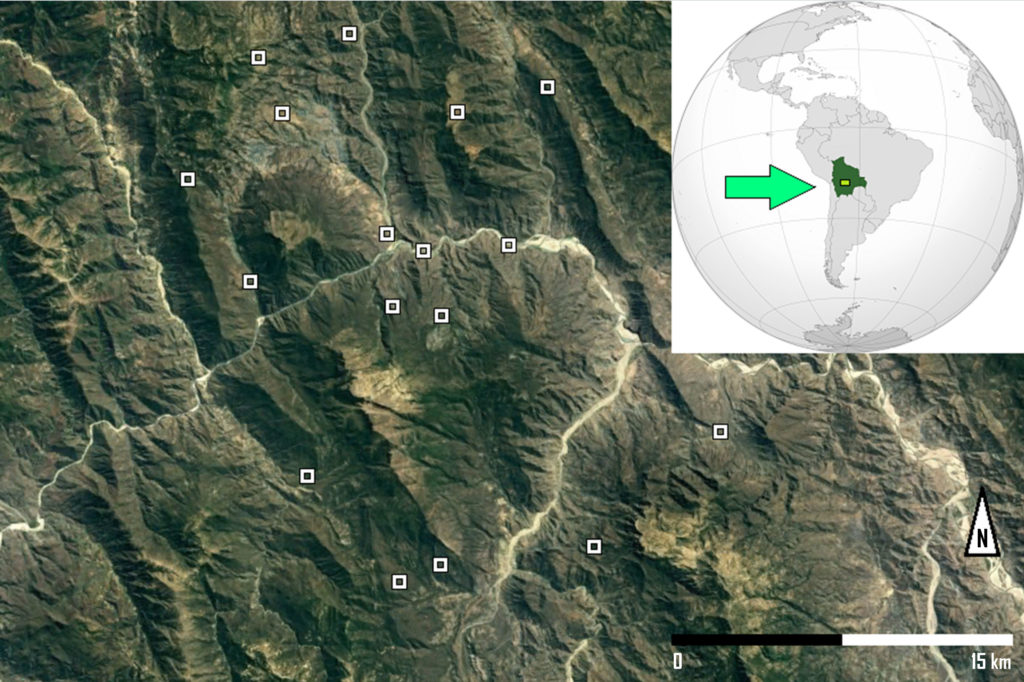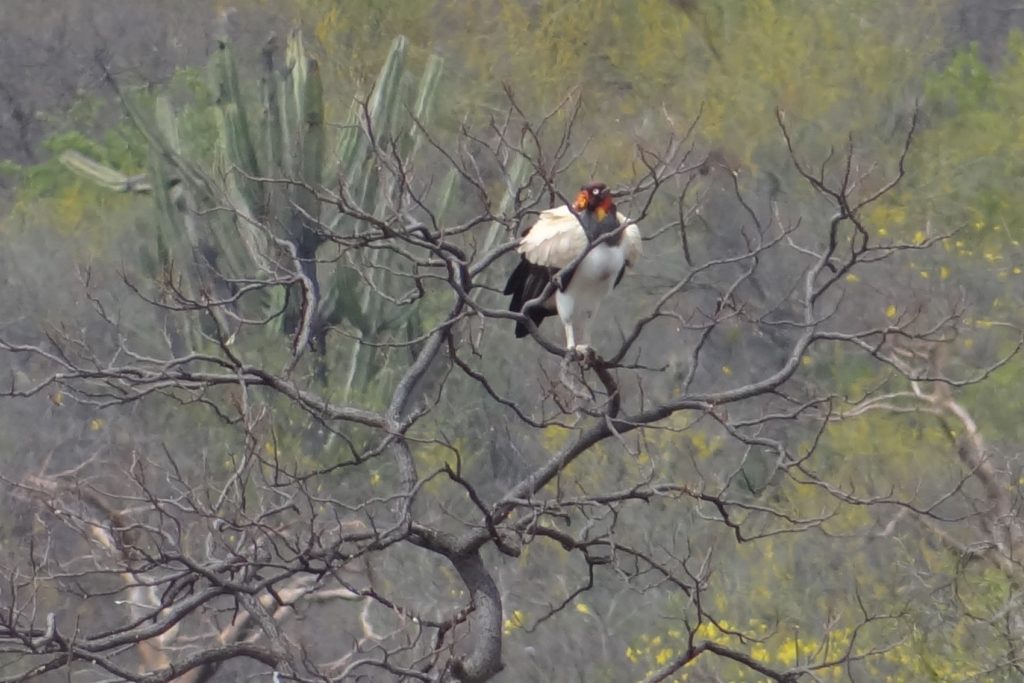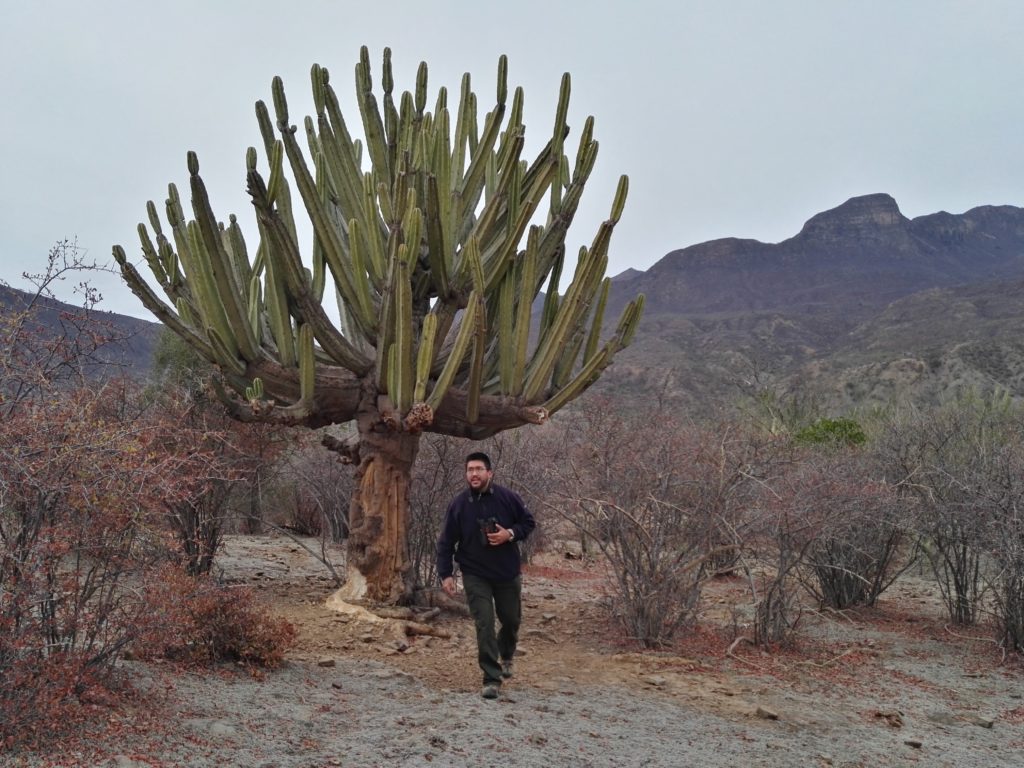
Diego Mendez won our Marion Paviour award in 2019 for his fascinating research project with King Vultures! The King Vulture is one of the most understudied raptors in South America; Diego is using the funds from the award to survey roosts, foraging grounds and, potentially, nests of the King Vulture in central Bolivia.
Diego’s project unavoidably suffered a considerable delay due to socio-political conflicts in Bolivia, which went through an extended period of unrest between October and November 2019. This understandably prevented Diego carrying out any field work during this period for approximately 30 days. However, Diego is extremely passionate and dedicated to his work, and with the reassurance that he is safe and the situation in Bolivia has become more stable he has sent us this update:
“Since I could not trap and tag King Vultures with GPS transmitters yet, and that my project mostly depends on this, the results I can present are still preliminary. Trapping these vultures has been difficult because: 1) they have proven extra wary of traps, 2) they are naturally rare in the study area, 3) during the study period, there was plenty of carcasses in the study area so that scavengers naturally preferred the carcasses that were not associated to traps, 4) inestimable events like domestic dogs bursting in the trapping site when the vultures were feeding and scaring them away.
“As a preliminary result, I was able to survey the study area and characterize it as an important area for the conservation of King Vultures, specifically as a feeding area of approximately 484 km2. During the 20-month study period I recorded 17 events of scavengers feeding on naturally occurring carcasses. The environmental and ecological characteristics of the study area allow the availability of carcasses – mainly of domestic ungulates – at sites that are still safe for vultures to land and feed.

“Following this categorization, a preliminary strategy for the management of vultures and condors in the study area is being drafted in collaboration with the local people. This strategy includes straightforward suggestions for the management of domestic dogs that may aggressively compete with vultures and condors at carcasses, as well as suggestions for livestock management. This suggestions focus on: 1) a better care of dogs through well planned feeding, 2) prevent and avoid that cattle give birth in remote areas where newborn livestock (cows, sheep, goats) is more vulnerable, so that livestock loss is reduced and the perception that it is usually attacked and/or predated by vultures and condors is clarified. Vultures and condors may actually attack newborn or weak livestock however these are rare events and it is important to understand that this happens either because this livestock was predestined to die due to its status or because the lack of correct management or protection.
“The participation of local people has been crucial to: 1) select and locate the best trapping locations, 2) survey the study area in search of King Vultures, 3) discuss and evaluate the factors that affect the coexistence of vultures and people as the basis for a first draft of a vulture management strategy. Besides the highly productive knowledge exchange and fraternization that is usually related to field work, there is no tangible benefit for local people for now. Once we finish the vulture management strategy that will be complemented with the essential telemetry data, local people will be better informed and prepared to coexist with vultures and condors, and likely to use them as strategic touristic resources.
“The most important next step of the project is to succeed in trapping and tracking King Vultures. Then, I will continue elaborating the vulture management strategy with local people until we have an official document. I will undoubtedly continue with my vulture conservation initiative until I meet all the proposed objectives!”

